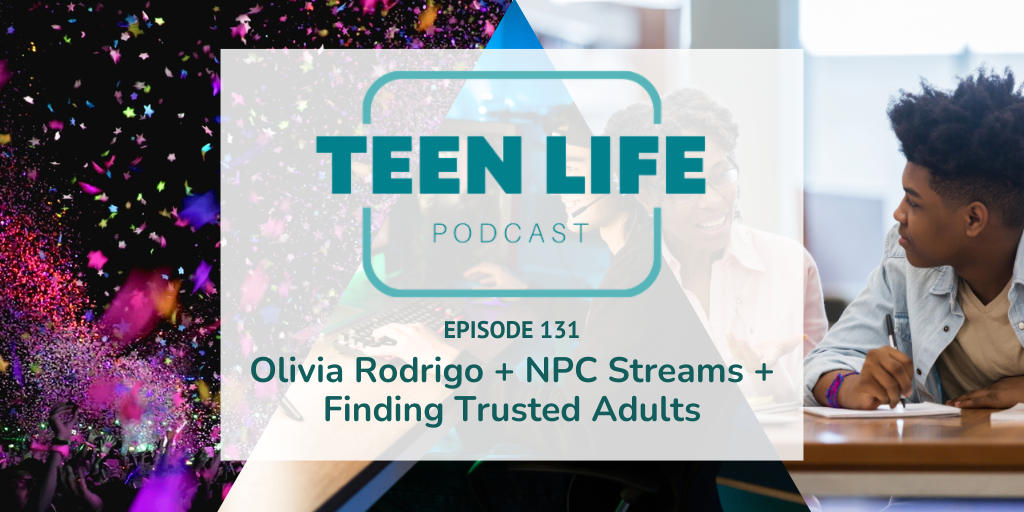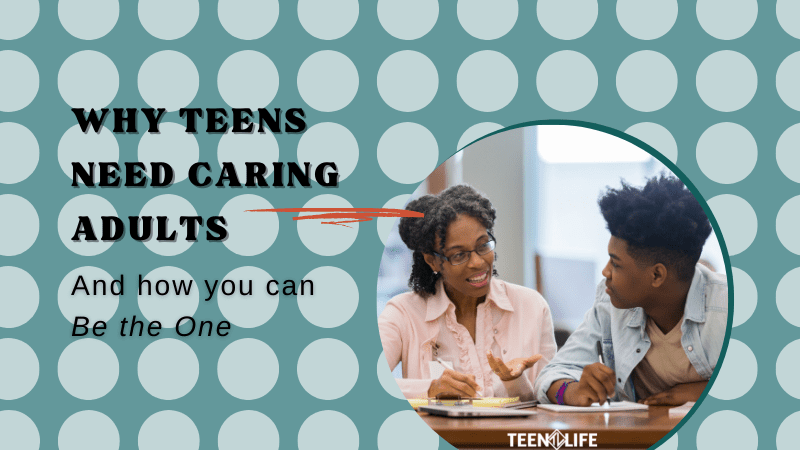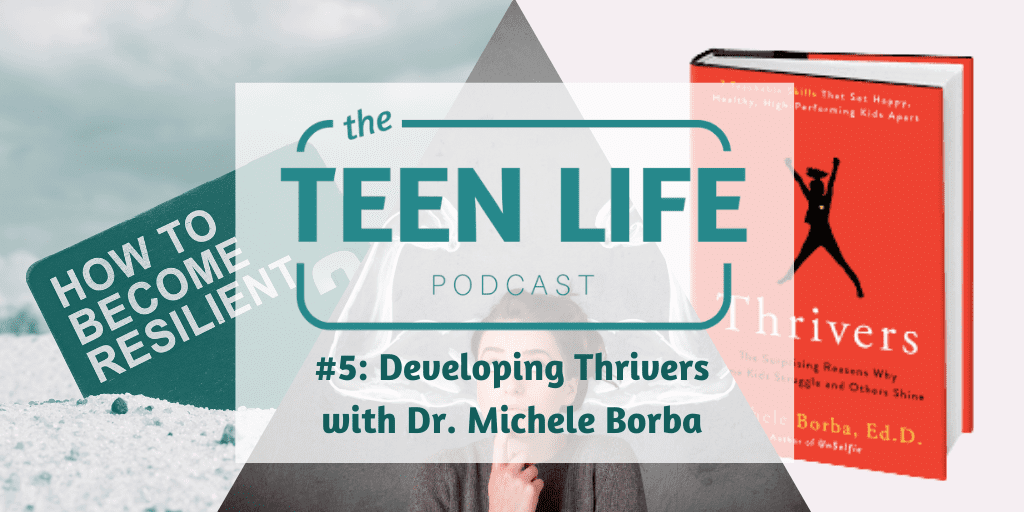
Olivia Rodrigo + NPC Streams + Finding Trusted Adults | Ep. 131
Podcast: Play in new window | Download
What makes a trusted adult and how can adults help teens thrive?
Here are a few of the qualities that define a trusted adult, along with some tips for both parents and non-parents on how to be that reliable source of support for teenagers.
What are the qualities of a trusted adult?
Someone They Can Talk To
A trusted adult is someone a teenager can openly communicate with. They are approachable and willing to listen without judgment. Teens should feel comfortable discussing their thoughts, concerns, and dreams with this person.
Available for Communication
In today’s digital age, communication is not limited to face-to-face interactions. Trusted adults should be reachable via text, calls, or other messaging platforms. This accessibility ensures that teens can seek advice and support when needed.
Provides Encouragement
Encouragement is a crucial component of trust. A trusted adult motivates and uplifts teenagers, boosting their self-esteem and helping them develop a positive self-image. Their words and actions should inspire confidence.
Willing to Give Honest Feedback
A trusted adult is not just a cheerleader; they also act as a guiding light. They are unafraid to call out a teenager when needed, helping them recognize their mistakes and grow from them.
A Safe Haven
Above all, a trusted adult is someone with whom a teenager feels safe. Teens should be able to confide in this person without fear of ridicule or betrayal. This safety net is essential for building trust.
So how can we help teens find trusted adults to confide in?
We’re so glad you asked.
Ask Who They Would Turn To
Sometimes, teenagers already have trusted adults in their lives but may not realize it. Parents and mentors can initiate a conversation by asking who the teen would turn to if they needed help or what are the qualities of a trusted adult.
Recognize Existing Trusted Adults
Chances are, teens have several potential trusted adults in their lives. This could be a teacher, coach, youth minister, parent of a friend, or a family member. Identifying and acknowledging these individuals is an essential step in cultivating trust.
Aim for a Network of Trust
Ideally, teens should have at least five trusted adults in their lives. A variety of perspectives and experiences can help them navigate different aspects of life. Parents can even ask people they trust to take a more prominent role as trusted adults, giving them permission to offer counsel without always involving the parent.
Encouraging mentor relationships for your teen
How to be a trusted adult
If you have teens in your life and are a trusted adult, there are three things that teens need you to do.
- Listen
- Encourage
- Keep it confidential (unless they are hurting themselves)
Also in this episode
- Olivia Rodrigo is back in the limelight with the release of her second album, GUTS
- Teen Term: Fax, No Printer
- NPC streams are increasing in popularity, but what are they and why do people watch?
In this episode, we mentioned or used the following resources about Olivia Rodrigo, NPC streaming, and finding trusted adults for teens.
- NPR: Guts Album
- Parent Cue: Why Your Kids Need Five Other Adults in Their Lives
- Next Gen Now Podcast: Apple l Spotify
- Podcast music by Luke Cabrera & Tobin Hodges
Have a question?
About Us

Karlie Duke
Director of Communications

Tobin Hodges
Program Director

Caleb Hatchett
Podcast Host
Caleb Hatchett | Podcast Co-Host
Caleb loves helping teenagers take ownership of their faith and relationships. He graduated from Abilene Christian University with a degree in Youth and Family Ministry and is currently Student Ministry Director at Jenks Church in Oklahoma.
Karlie Duke | Director of Communications
Karlie has always had a heart for teenagers. Through her role at Teen Life, she loves to showcase the amazing stories coming out of Support Groups, but she is especially passionate about helping adults and teenagers find connection. Karlie has a BS in Communications with a minor in Family Studies from Abilene Christian University.
Tobin Hodges | Program Director
Tobin’s entire career has been centered around students and teens from all walks of life. He has a passion for helping teens be their best selves. As Program Director, he loves working directly with school staff and students through Teen Life Support Groups. Tobin has a Bachelor’s Degree in Music from Texas Tech University.












